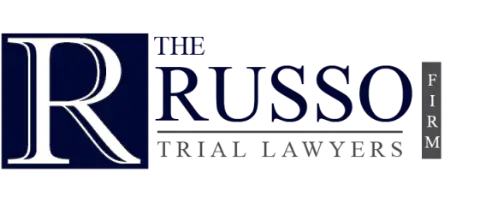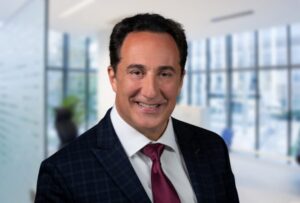Customers of Burger King have filed a class action lawsuit against the fast food corporation for falsely advertising the size of their Whopper menu item. They market the burger as one of the biggest on the market, but the reality can be quite different.
Plaintiffs allege that Burger King Whopper advertisements exaggerate the size of the menu item by 35%, with consumers receiving less meat than they can clearly see in BK’s ads. It was not always this way, as Burger King’s advertisements were much more accurate before 2017 based on side-by-side comparisons.
Those suing Burger King for false advertising seek compensation to reimburse them for the cost of overstated menu items and injunctive relief to correct the false advertisements. The fast food lawyers at The Russo Firm represent Burger King plaintiffs and can help you file your lawsuit.
Why are People Suing Burger King About Their Whopper Item?
The primary allegation for the Burger King class action lawsuit is false advertising of their Whopper item. The Whopper is one of the most popular fast food items, advertised as one of the largest burgers you could purchase at a fast food restaurant.
However, the glossy advertisements and marketing materials overstate the size of the burger. According to the Burger King Whopper lawsuit filing, the plaintiffs allege that Burger King began overstating the size of the Whopper in September 2017.
The plaintiffs state, “a side-by-side comparison of Burger King’s former Whopper advertisement to the current Whopper advertisement shows that the burger increased in size by approximately 35% and the amount of beef increased by more than 100%.” Despite this increase in size presented by marketing, the actual burger is still the same size.
What is Unjust Enrichment and How Does It Apply to Burger King’s False Advertising?
Plaintiffs from Florida, New York, Michigan, California, Connecticut, Mississippi, Pennsylvania, etc. have filed lawsuits to hold Burger King accountable for false advertising. They allege Burger King benefitted from unjust enrichment from their false advertising of the Whopper.
Unjust enrichment is when one party receives benefits without the other party receiving what they should. In this case, Burger King receives the benefit of more business for advertising their Whoppers are bigger than they are, but consumers do not get what they paid for.
Plaintiffs seek financial restitution because the “Defendant has been unjustly enriched at the expense of Plaintiffs and members of the Class, and thus Plaintiffs and members of the Class were unjustly deprived of time and value of money provided to Defendant.”
How Has Burger King Combated The Whooper False Advertising Allegations?
Burger King has argued against these claims of false advertising of the Whopper, “food in advertisements is and always has been styled to make it look as appetizing as possible. That is hardly news; reasonable consumers viewing food advertising know it innately. This lawsuit unreasonably pretends otherwise.”
They filed a motion to dismiss the Burger King class action lawsuit because they made it clear how much beef the Whopper contains. Despite commercials, menu ordering photographs, and online ordering images misrepresenting the Whopper’s size, they believe they have done a sufficient job in letting consumers know about the size of their burger.
Burger King also contends that the plaintiffs “failed to plead the elements of two of the state statutory claims” in Mississippi and Ohio. Failing to plead statutory elements could lead to these claims being dismissed.
What Damages Do Burger King Lawsuit Plaintiffs Seek?
The plaintiffs in the Burger King Whopper class action lawsuit seek economic damages to compensate them for paying for an overstated item. They spent money on the Whopper based on false marketing. If the advertising was honest, they may have spent their money elsewhere. Thus, the plaintiffs seek payment to compensate them for lost money.
They also seek injunctive relief to correct the advertising, so Burger King honestly portrays their Whopper burger. Injunctive relief is when the court requires one of the parties to change their behavior to ensure something doesn’t happen again.
In this case, injunctive relief would include changing the marketing of the Whopper. This would involve Burger King adopting a marketing plan that would accurately represent the size of the Whopper, much like they had before September 2017.
Do You Need the Help of a Fast Food Lawyer for Your Burger King Lawsuit?
Class action and mass tort lawsuits can be complicated for someone without legal experience. They may not understand how they work, what the process is for joining them, and what steps to take to put themselves in a position to recover compensatory damages.
The best way to avoid mistakes that can hurt their ability to recover compensation for damages is to hire a fast food lawyer. Those with experience handling false advertising claims can advise on the process for recovering compensation in a consolidated lawsuit.
They can explain to you how to join the Burger King class action, what paperwork you need to file, and what the process is for recovering compensation for damages. A fast food lawyer can handle the difficult steps, so you do not make a mistake that can hurt your ability to recover fair compensation.
Contact The Russo Firm for Help With Your Burger King Lawsuit
At The Russo Firm, our fast food lawyers have experience helping those who experienced false advertising from Burger King, McDonald’s, and Taco Bell. We understand the financial position some are in, with food costing more money because of inflation and meat prices. For that reason, we represent Burger King false advertising plaintiffs seeking financial restitution.
It’s terrible to lose money paying for a meal when you do not get what you paid for. Our fast food lawyers can help you file the paperwork to join the Burger King Whopper class action or any other class action lawsuit regarding false advertising from fast food companies.
Our fast food attorneys offer free consultations to show potential clients how they can advise and help them recover fair compensatory damages. Contact us for a free Burger King case evaluation today at (561) 270-0913 or leave a message on our online contact page.

